Christianity: A Cause of Modern Science
Christianity: A Cause of Modern Science
Christianity: A Cause of Modern Science
- No tags were found...
Create successful ePaper yourself
Turn your PDF publications into a flip-book with our unique Google optimized e-Paper software.
20CHRISTIAN THEOLOGY'S LINEAR TIME CONCEPT OF TIME VERSUSPAGAN ETERNAL CYCLESBecause it would involve repeating exactly or almost exactly the events <strong>of</strong> theBible's history, Christians fundamentally could never accept the idea <strong>of</strong> eternalcycles. To a Christian, the thought <strong>of</strong> his savior God dying horribly on a stakerepeatedly again and again is too horrible to contemplate: ". . . because this Hedid once for all when He <strong>of</strong>fered up Himself" (Heb. 7:27). Hence, even whensome Christians influenced by pagan thought accepted by idea <strong>of</strong> eternalcycles, who include the rather unorthodox Catholic church father Origen (185?-254? A.D.) and even St. Thomas Aquinas, the concept was accepted in a highlymitigated, attenuated form that greatly lessened its ill effects. Origen and St.Thomas both still believed in an absolute starting point (creation), and endingpoint (judgment). They still believed free will existed, which mean the passivityand sense <strong>of</strong> hopelessness induced by the treadmill <strong>of</strong> meaningless alterations<strong>of</strong> catastrophes and golden ages in ages past and to come was largelyremoved. Some early Christian theologians, such as Jerome (c. 374-419 A.D.,translator <strong>of</strong> the Latin Vulgate Bible) and Hippoclytus, condemned eternalcycles totally. St. Augustine, the greatest <strong>of</strong> the Catholic Church fathers (354-430 A.D.), was more equivocal, but was willing to forcefully condemn the moreliteral forms <strong>of</strong> eternal cycles, and still believed in creation and judgment. Hedenied reincarnation as well. This allowed him to maintain a basically linearconcept <strong>of</strong> time with the two end points between God beginning everything andjudging everyone. Bishop Tempier's condemnations in 1277 helped put a limiton the acceptance <strong>of</strong> such anti-scientific doctrines through an attack on eternalcycles in proposition 92, and against the eternal existence <strong>of</strong> the universe (abelief necessarily tied to the former) in propositions 83-91. Thesecondemnations helped keep many philosophers/theologians in Christendomfrom totally capitulating to Aristotelian thought, as had happened with Islamicculture with Avicenna Averroes, and the mutazilites. Oresme (1323?-1382), adirect forerunner <strong>of</strong> Galileo in developing physics freed from Aristotelianconceptions, condemned belief in such cycles. Hence, the Christian belief increation and judgment kept Christendom <strong>of</strong>f "the treadmill <strong>of</strong> the Yugas" (Jaki's




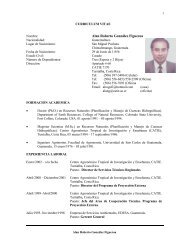
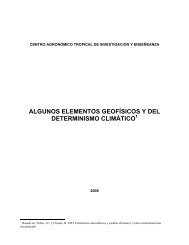
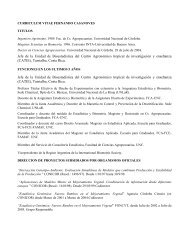
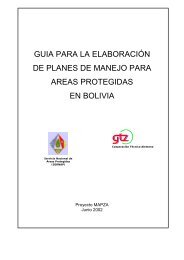
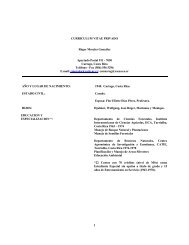
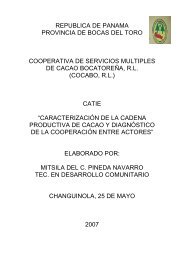
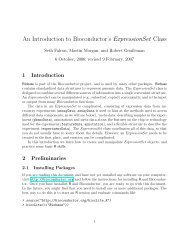
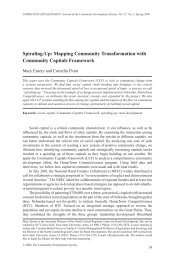

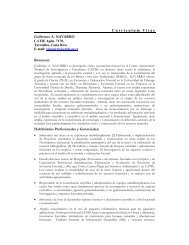

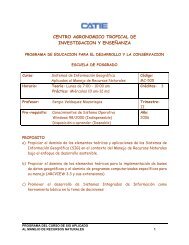
![Tratamientos y MD_2009 [Modo de compatibilidad].pdf - Catie](https://img.yumpu.com/49175499/1/190x134/tratamientos-y-md-2009-modo-de-compatibilidadpdf-catie.jpg?quality=85)